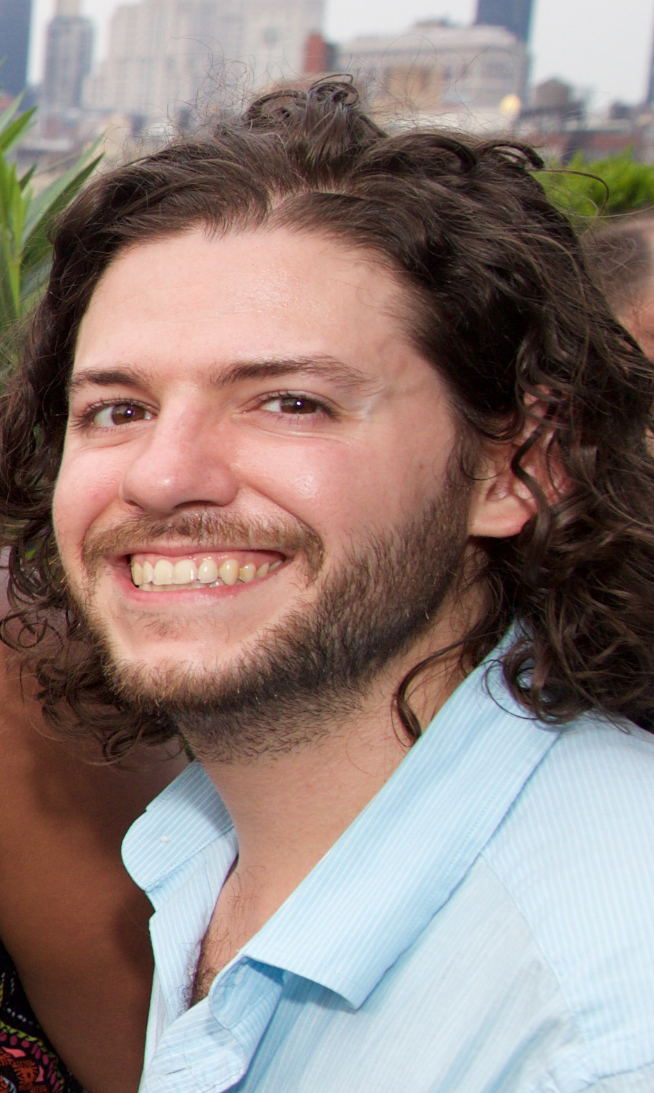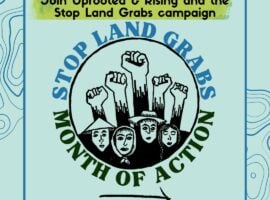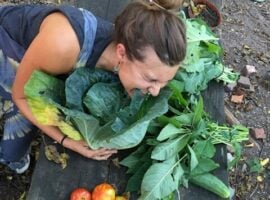Written by Elena Seeley
As we explore organizations pursuing economic justice in the United States, we looked at the community-based work of Elijah’s Promise in New Brunswick, New Jersey. Now in its thirtieth year, what began as a soup kitchen has expanded into so much more, harnessing the power of food to end hunger and break the cycle of poverty.
Today, Elijah’s Promise works to reduce as many obstacles as possible for those facing poverty. The agency still meets the immediate needs of the community by providing hot meals and connecting people to additional resources including housing and healthcare, but they are focused on programs to sustainably support the livelihood of community members. In addition, Elijah’s Promise supports and acts as the fiscal agent for the New Brunswick Community Food Alliance, the food policy council of New Brunswick.
They also recently launched two new programs. The first, Mercado Esperanza, is a collaborative, pop-up market, held once a month in a local park in New Brunswick. Designed by and for the community, it leverages the kitchen space of Elijah’s Promise and provides a space for community members to create and sell their own products. The second, stemming from a USDA Local Food Promotion Project grant, works with farmers to help them create value-added products such as jams and tomato sauces to increase their business and support their economic sustainability.
To help us understand how the work at Elijah’s Promise intersects with economic justice, we spoke with Community Services Director, Yvette Molina and Associate Director, Anthony Capece. Interviews have been edited for length.
Q: What does economic justice mean to you? 
Yvette Molina: Economic justice means that people are able to live and be successful at having adequate access to basic needs: good food, clothing, shelter, a livable wage, and that they have access in a just manner.
For example, Elijah’s Promise now pays $15 an hour. If we are to empower our community, we have to stand by their side to be able to help them from an economic perspective. This means that people shouldn’t have to suffer or have to decide what to eat or what to do or what not to do to save a dollar or fifty cents or sacrifice a good meal for a child because they don’t have enough.
And we’ve been fortunate to work with other providers and community organizers in the city of New Brunswick. Under the leadership of community based organizations including our food policy council, New Brunswick Food Alliance, and through community organizing, the city was able to pass paid sick leave in restaurants, which was huge.
Q: Can you tell me about some of the greatest challenges you see in pursuing economic justice?
 Anthony Capece: I think a lot of what we do with these kind of projects is formalizing the informal. Using the lens of food vendors, there’s an incredible amount of overhead that goes into making a food business. [You] need to create your product, transport your product, keep it at temperature, and that’s a pretty big financial burden, especially if you don’t have much money to begin with. So the infrastructure around it and the means that these folks have oftentimes work against people trying to improve their economic well-being.
Anthony Capece: I think a lot of what we do with these kind of projects is formalizing the informal. Using the lens of food vendors, there’s an incredible amount of overhead that goes into making a food business. [You] need to create your product, transport your product, keep it at temperature, and that’s a pretty big financial burden, especially if you don’t have much money to begin with. So the infrastructure around it and the means that these folks have oftentimes work against people trying to improve their economic well-being.
When you’re [facing poverty] you need to hustle to make sure that you can pay rent and you can put food on the table for yourself and your family and sometimes that passion, that hustle, comes in direct conflict with things like the county health regulations in terms of where you make your food product. Maybe you don’t know all the institutional checks and checklists. And I find that a lot of those opportunities to educate folks who want to move into a space of economic justice for themselves really aren’t out there, [or aren’t] straightforward. For example, all of the materials to get permits done are in English even though we are a majority Spanish speaking community.
Can you tell me about some of the programming at Elijah’s Promise and how that promotes economic justice?
YM: We have various programs where we help folks with immediate needs or concerns. And then at the same time we help them with job development or employment services, like with Promise Culinary School. That’s just one piece of helping people become empowered and get into a more competitive process of getting a better job and a better, livable wage. We also guide our clients at the soup kitchen and do our own classes on how to start their own business and how to champion what they already have. We see experienced people with culinary or business backgrounds and our trainings enhance what knowledge and experience they bring. Some of our students and participants move on to start their own business or participate in other entrepreneurship ventures. Because we have this capacity, we have also implemented Mercado Esperanza where entrepreneurs can come out and sell food and/or products to the community.
We also have our own medical clinic. A lot of our clients don’t have to worry about paying for medication, paying for medical care, lab work. They also don’t have to worry about buying food versus paying for medicine. So it’s all about dollars and cents and the resources that they’re tapping into that improves their lives.
Can you elaborate on the role of community and how its importance factors into your work?
AC: I think the way to put it best is nobody knows the needs of the community better than the folks who live within it and make it up. We’ve had that in mind the entire time with our Mercado Esperanza Project. One of our partners who’s from New Brunswick Tomorrow has done a really phenomenal job curating a community group within the Esperanza neighborhood. We’re able to use all their hard work as a way to introduce this project to a group of folks. [We] took some notes and let these folks from the group tear down some ideas, let us know what they really liked and that really started our community assessment of the project. We also went to some Day of the Dead celebrations, which is huge in Mexican culture. It’s specifically the Oaxacan and Pueblan cultures that make up the majority of folks in New Brunswick.
And putting all these pieces together, we came up with this pop-up market format, really spending a lot of time and resources to make sure that there are cultural events that represent the Latino community. It’s the difference between working withthe community versus working for the community. And while there are times then it makes the process a little bit longer and slower than you originally anticipated, the value it brings to the project – you can’t even describe it. The people in the community support it because they see that the community is at the very forefront.
How do you understand the intersection of economic justice and the right to food? Can we talk about one without the other?
YM: No, we can’t. We need to understand the power of the economy behind that. Because the economy is the force that drives the systems around the food system. We also have to be just. We have to understand that if we are to be just and raise our communities, feed our communities healthy food, we also have to understand that they need a piece and we have to be equitable to them as well. I remember, my ex-boss used to say if people were to understand where food comes from and the economy behind it and what does that mean, people would have a whole different opinion.
Can you talk about progress that you’ve seen and what gives you hope for change?
AC: The progress has really been a lot of this implementation in the last several years in particular: being able to synthesize all of this energy and being able to put it into concise programming goals and ideas and just getting the validation from outside funders that this is a good idea, this is a model that’s worth investing in, allowing us to go ahead and do it. I think we have so much forward momentum right now, it’s a really exciting time at Elijah’s Promise and I’m really looking forward to seeing where we are two or three years from now.
I think that awareness of who you are, what you want to stand for, how you want to implement that, that needs to be at the very core of your decision making. If you have that and that’s a priority for you, that will manifest itself in that programming.
Born and raised in New York, Elena writes and thinks about about local, national, and global foodscapes and is pursuing an MA in Food Studies.






